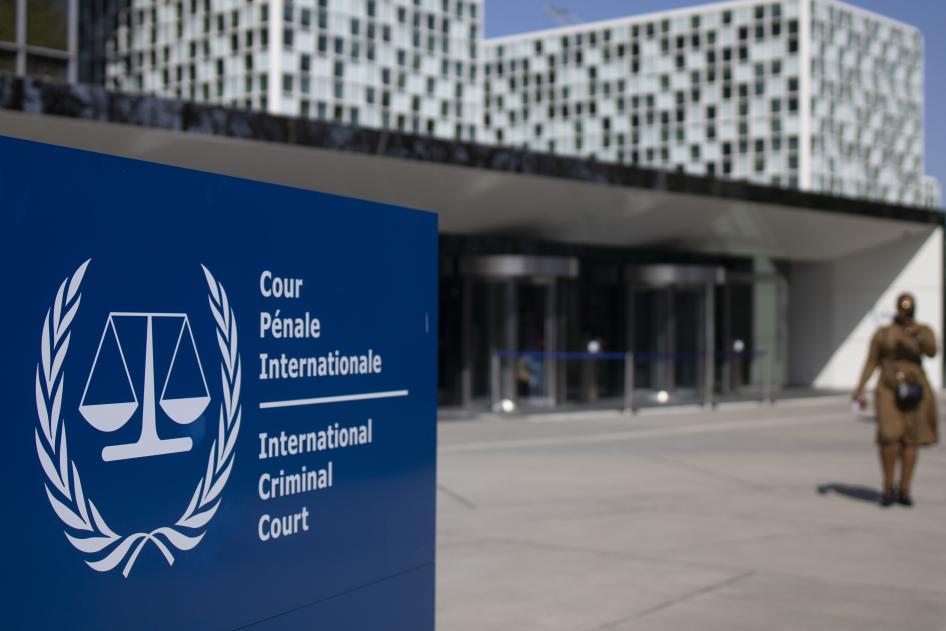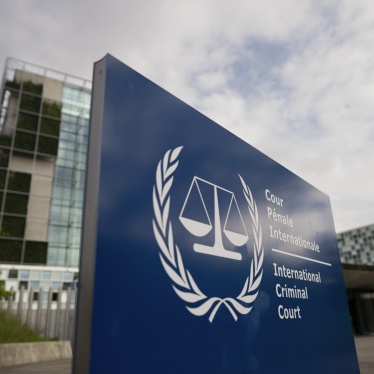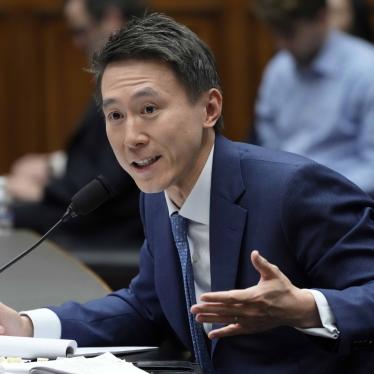- Member countries of the International Criminal Court (ICC) should support the court against efforts to undermine its global mandate.
- The court has been under extreme pressure since ICC judges issued arrest warrants for senior Israeli leaders as well as a Hamas official in the Palestine investigation.
- Member countries should make a commitment during their annual meeting to fulfill their obligation to execute the court’s arrest warrants, regardless of whom they target.
(The Hague) – Member countries of the International Criminal Court (ICC) should support the court against efforts to undermine its global mandate, Human Rights Watch said today. The annual session of the ICC’s Assembly of States Parties will take place in The Hague, Netherlands, from December 2 to 7, 2024.
Human Rights Watch issued a 24-page report providing recommendations to member countries aimed at ensuring the court has the political backing, resources, and cooperation it needs to advance investigations and cases across its docket. The court has been under extreme pressure since ICC judges in the Palestine investigation issued arrest warrants on November 21, for Israeli Prime Minister Benjamin Netanyahu and former Defense Minister Yoav Gallant, as well as Mohammed Diab Ibrahim al-Masri (Mohammed Deif), commander-in-chief of Hamas’ military wing, the Qassam Brigades. US lawmakers renewed their threats to impose sanctions on ICC officials and those cooperating with the court.
“ICC warrants, whether against Vladimir Putin or Benjamin Netanyahu, send a critical message that no one is above the law,” said Liz Evenson, international justice director at Human Rights Watch. “ICC member countries should make a commitment during their annual meeting to take all necessary steps to ensure that the ICC’s crucial work for justice can continue without obstruction.”
Following the November 21 warrant decisions, US Senator Lindsey Graham called for the US Senate and President Joe Biden to enact a bill passed by the House of Representatives on June 4, aimed at imposing sanctions against the court, its officials, and those supporting its work. The bill is modeled on a sanctions program put in place by then-US President Donald Trump in 2020.
Any US sanctions would have wide-reaching consequences for global justice that go beyond the individuals targeted, Human Rights Watch said. Sanctions may create apprehension and legal uncertainty for service providers, nongovernmental organizations, consultants, and lawyers who work with the ICC. Sanctions are a tool to be used against those responsible for the most serious crimes, not against those promoting justice, Human Rights Watch said.
In a principled show of support, ICC member countries from every region affirmed their backing for the court’s independence and their commitment to abide by the court’s decisions, and called on others to do the same. However, some member countries appeared to avoid explicitly committing to enforcing the warrants flowing from the Palestine investigation, while a few openly criticized the judges’ decision to issue them. Hungarian President Victor Orban said he would invite Netanyahu to visit Hungary, though all ICC members, including Hungary, have an obligation to arrest anyone wanted by the court.
On November 27, the French government apparently claimed that Netanyahu has immunity from arrest as the head of state of a country that is not a member of the ICC. ICC judges have rejected this view, most recently in relation to Putin’s travel without arrest to Mongolia, an ICC member country.
At the Assembly session, ICC member countries should publicly make a commitment to enforce the ICC warrants, regardless of whom they target, and condemn threats and attacks against the court, its officials, and its supporters including civil society organizations and human rights defenders.
Beyond the threatened US sanctions, arrest warrants issued by Russia against the ICC prosecutor and six of the court’s current and former judges in retaliation to the court’s March 2023 warrant against Russian President Vladimir Putin, remain pending, and a law criminalizing cooperation with the ICC remains in force in the country. In September 2023, the court was the target of a serious cyber-attack.
Member countries should also commit during the session to take concrete steps to protect the court from all coercive measures. This includes adopting and implementing national and regional laws to minimize or eliminate the effects of sanctions. The European Union should be ready to swiftly activate its “blocking statute” if the US puts sanctions in place, Human Rights Watch said. This law aims to shield European operators from the effects of extraterritorial sanctions and ensure that the court can continue its work unaffected.
ICC member countries will also set the court’s budget for 2025. The court is currently operating in 16 countries across the globe. An ongoing mismatch between the court’s workload and the resources available to it has severely hampered its ability to effectively deliver on its mandate. Member countries should be mindful of how the court’s chronic underfunding affects victims’ access to justice, and adopt an annual budget that will allow the ICC to do its job consistently and effectively across all situations on its docket, Human Rights Watch said.
At the Assembly session, member countries will also determine the future of the review of the court’s performance by independent experts, which produced nearly 400 recommendations for change, in 2020. As they decide on next steps, member countries should ensure continued monitoring of how the experts’ recommendations are being implemented and reflect on the role of member countries in providing the court with the support it needs, Human Rights Watch said.
The expert report included troubling findings about workplace culture at the court. Among other issues, the experts identified gaps in the current system to address allegations of misconduct by elected court officials and made a number of recommendations to strengthen internal grievance procedures, but most of these have not been implemented.
On November 11, the Assembly President Päivi Kaukoranta of Finland, announced that she is seeking an external investigation into allegations of sexual harassment against the ICC prosecutor, after an initial inquiry by the court’s Independent Oversight Mechanism was closed. The external investigation should have the authority to put in place necessary safeguards to protect its integrity, including considering whether the prosecutor should temporarily step away from his duties while the investigation is ongoing, Human Rights Watch said.
“The ICC needs the support of its member countries to fulfill its ambitious global mandate of delivering justice for the most serious crimes,” Evenson said. “Member country support needs to be consistent over time and across situations to avoid double standards and uphold the court’s legitimacy for victims and affected communities.”









